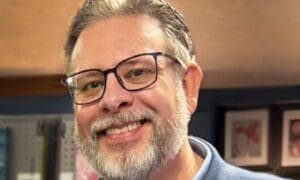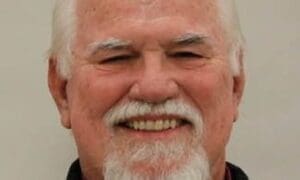Seems like everybody has a cell phone, or a smart phone, or a blue tooth. I don’t know how we got along without them. I still think it’s strange when I’m in a store and round the corner and someone is carrying on a conversation … by themselves. Or at least they appear to be talking to themselves.
My point of reference is my growing up in Milledgeville. I’ve seen some of those folks who had an imaginary friend and carried on conversations with people who weren’t there. But these days, someone talking to himself is using some sort of hands-free device and is simply talking on the phone. Out loud. In public.
There have been times when cell phones were not just conveniences, but life savers. Several days ago, a man entered a Hess gas station in Winter Garden, Florida, and asked for assistance. Then he pulled a gun and demanded the clerks open the safe. When the two employees had trouble with the safe, the gunman pulled the trigger and left the store.
When police and paramedics arrived, one of the clerks being interviewed started complaining of a pain in his chest. He pulled his cell phone from his pocket and there was a bullet lodged in it. That’s when he realized he had been shot, but his phone stopped the bullet. The screen was shattered, but his life was spared.
In May 2002, Leonardo Diaz, a Columbian hiker, decided to do some serious mountain climbing with friends. Their goal was to reach the summit of the Nevado del Ruiz, a volcano in the Andes.
On the second day of the climb, a major blizzard hit. Diaz lost sight of his friends and became separated from them. Although not initially worried, the novice climber soon began to run out of rations and suffer from the bitter cold.
Although he had his cellphone in his backpack, his pre-paid minutes had already expired. With no signal for help, Diaz realized he was not going to make it. As he lay in the frigid snow preparing to die, his cell phone rang. It was a phone solicitor in Bogota wanting to know if Diaz was interested in purchasing more minutes!
“We called him to remind him that his cell phone was out of minutes,” said Maria del pilar Bastos of what was then Bell South. “He said it was the work of an angel, because he was lost in the Andes.”
Diaz described his location to the caller and asked that his family be notified so they could dispatch a rescue team. The Bell South operators, who could tell from the sound of his voice that hypothermia had already begun to set, called Diaz every 30 minutes to keep him awake and to maintain his hope of survival. Seven hours later, rescuers arrived.
That was one time a telemarketer’s call was welcomed.
Mark Ashton-Smith was kayaking off of England’s coast when the seas got rough and he capsized. He was able to grab his kayak and hang on for dear life. He reached for his cell phone and his first impulse was to call his father. His father, a military officer, was training British troops 3,500 miles away.
Mark’s father’s phone rang, he heard the distress in his son’s voice and relayed his son’s mayday call to the nearest Coast Guard Post, which was less than a mile away. Within 12 minutes of capsizing in the water, he was plucked from that water by a Coast Guard helicopter.
What is your first response when danger comes? We should immediately call on our heavenly Father, who is just a prayer away, and who invites us to “Call unto me, and I will answer you, and how you great and mighty things which you know not,” (Jeremiah 33:3).
————-
[Dr. David L. Chancey is pastor, McDonough Road Baptist Church, Fayetteville, Ga. The church family meets at 352 McDonough Road, just past the DMV building, and invites you to join them this Sunday for Bible study at 9:45 a.m. and worship at 10:55 a.m. Visit them on the web at www.mcdonoughroad.org and like them on Facebook.]











Leave a Comment
You must be logged in to post a comment.